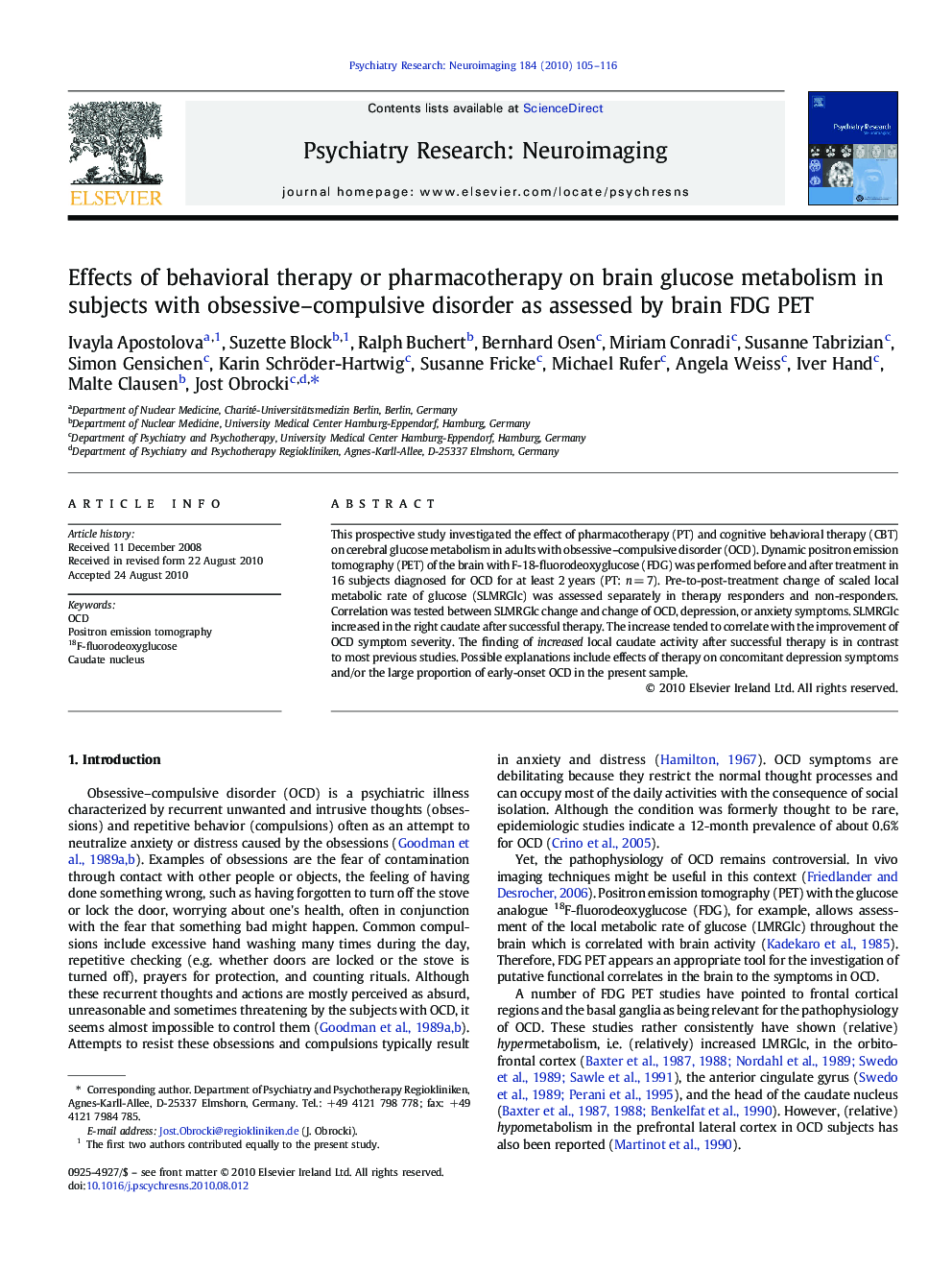| کد مقاله | کد نشریه | سال انتشار | مقاله انگلیسی | نسخه تمام متن |
|---|---|---|---|---|
| 334559 | 546581 | 2010 | 12 صفحه PDF | دانلود رایگان |

This prospective study investigated the effect of pharmacotherapy (PT) and cognitive behavioral therapy (CBT) on cerebral glucose metabolism in adults with obsessive–compulsive disorder (OCD). Dynamic positron emission tomography (PET) of the brain with F-18-fluorodeoxyglucose (FDG) was performed before and after treatment in 16 subjects diagnosed for OCD for at least 2 years (PT: n = 7). Pre-to-post-treatment change of scaled local metabolic rate of glucose (SLMRGlc) was assessed separately in therapy responders and non-responders. Correlation was tested between SLMRGlc change and change of OCD, depression, or anxiety symptoms. SLMRGlc increased in the right caudate after successful therapy. The increase tended to correlate with the improvement of OCD symptom severity. The finding of increased local caudate activity after successful therapy is in contrast to most previous studies. Possible explanations include effects of therapy on concomitant depression symptoms and/or the large proportion of early-onset OCD in the present sample.
Journal: Psychiatry Research: Neuroimaging - Volume 184, Issue 2, 30 November 2010, Pages 105–116